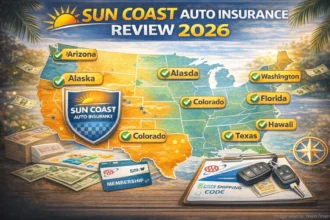Municipal bonds (munis) are issued by municipalities, states, counties, cities, and other government agencies. These debt obligations are used for funding day-to-day operations and large public projects such as highway repair/retrofitting, construction of public buildings, and facilities that offer services to residents, like sewage and waste management. Investors do not pay federal taxes on the interest received from municipal bonds. Some munis, but not all, also provide tax-exempt interest on the state and local levels.
A common municipal bond, known as a general obligation (GO) bond, offers low risk because it is backed by the full faith and credit of the issuing municipality. Unlike corporate bonds, which are backed by the revenue of a corporation, municipal bonds are backed by tax funds, so there is little chance that a municipality would not be able to meet its debt obligation. In the unlikely event that taxes are not paid by residents or collected by the municipality, these munis will be repaid on time with little chance of default. It is for this reason that GO bonds are often found in large pension plans.
Lower risk and tax-free interest generally translate into lower yields for investors. Corporate bonds or even taxable municipal bonds offer higher yields but do not offer tax-exempt interest. One other type of municipal bond issued is a revenue-backed bond. Revenue-backed bond interest payments are not paid by tax payments, but instead are backed by the revenue generated from a project.
A good example of a revenue-generating project can be found in the erection of Levi’s Stadium in Santa Clara, California. The revenue-backed bond relies heavily on the roughly $30,000,000 per year in rent payments made by the San Francisco 49ers. However, without the full faith and credit of the City of Santa Clara, the bond is not as secure. According to S.F. Gate, there appears to be a dispute bubbling because the San Francisco 49ers claim that the rent charged by the City of Santa Clara is disproportionately higher than what was supposed to be paid, which was based on the construction costs estimated by the city. The San Francisco 49ers are attempting to renegotiate a lower annual rent as a direct result of the lower construction costs and have entered arbitration to reduce their payments.
Levi’s Stadium is an example of how a revenue-backed bond payment might default. However, in 1994, Orange County did default on a $110,000,000 municipal bond payment. According the New York Times, the county was unable to make a payment on a pension bond. A pension bond is created when a municipality, city, county, or other government entity borrows money from public investors to meet a payment on pension obligations. Not all municipal bonds are low risk, and each potential investment should be examined carefully.
Municipal bonds are perfect for issuing tax-free income for wealthy or accredited investors. Investment advisors will ladder bond payments so that an investor will receive consistent monthly payments. Munis typically pay interest installments semi-annually. An investor who desires regular interest payments each month will buy multiple bonds with different maturity dates so that the payments are staggered.
Conclusion
Munis are low-risk investments that can provide tax-free interest payments. Not all municipal bonds are both federally and locally (state and city) tax exempt. There are two generally issued municipal bonds: revenue bonds, which are backed by the revenue produced by issuing entity, and general obligation bonds, which are backed by taxpayers. Munis are not risk-free, and a prospectus should be carefully inspected before any money is invested. The Electronic Municipal Market Access (EMMA) is a great resource to locate municipal bonds in an investor’s immediate vicinity and find current bond yields.






